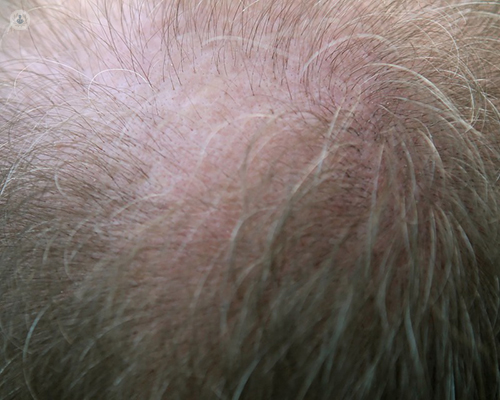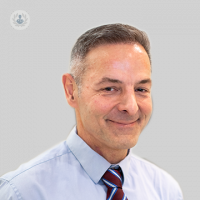Telogen effluvium: why is my hair falling out?
Written by:Telogen effluvium is a relatively unknown, but fairly common, form of hair loss. Sufferers usually experience a general thinning rather than specific patches of baldness or a receding hairline. Sometimes it is short-lived and hair grows back, whilst in other cases, it becomes chronic and is known as diffuse hair loss. In his penultimate article of the series, one of our top London-based dermatologist Dr Aleksandar Godic discusses the condition…


What is TE, or telogen effluvium?
Telogen effluvium (TE), causes the thinning or shedding of hair due to the early entry of hair into the telogen - otherwise known as the resting phase. Hairs stop growing prematurely and go into the resting phase, where they will stay for about three months before starting to fall out.
Normally, there is about 10% of hair in the resting phase and hairs shed at a rate of between 50 and 120 per day. With telogen effluvium, this number is significantly higher and this is what causes the hair loss.
What causes TE?
Telogen effluvium occurs suddenly and can be triggered by a whole host of things in susceptible individuals. There is a three month lag between the trigger and the onset of hair loss, corresponding to the length of the telogen, or resting, phase
The most common trigger factors are certain medications, infections, chronic illnesses, surgical procedures, fever, severe emotional stress, initiation or termination of hormonal therapy (for example, starting or stopping birth control pills or hormone replacement therapy), pregnancy terminations, an under- or overactive thyroid, diet, anaemia, diabetes, childbirth, and an autoimmune disease called systemic lupus erythematosus.
Can TE be treated?
In most cases it is temporary, lasting up to six months, and the hair may grow back by itself. In some cases, however, telogen effluvium becomes chronic (long-lasting).
What is diffuse hair loss?
Chronic telogen effluvium, also known as diffuse hair loss, is a prolonged hair loss condition that displays the same signs as regular TE, however, it may last up to several years with hair on the scalp showing more significant signs of thinning.
Can diffuse hair-loss be treated?
It is essential that patients see a specialist in order to establish the correct diagnosis and ensure that the underlying cause is treated in addition to the hair loss. Diffuse hair loss often overlaps with or precedes female pattern hair loss in women.


